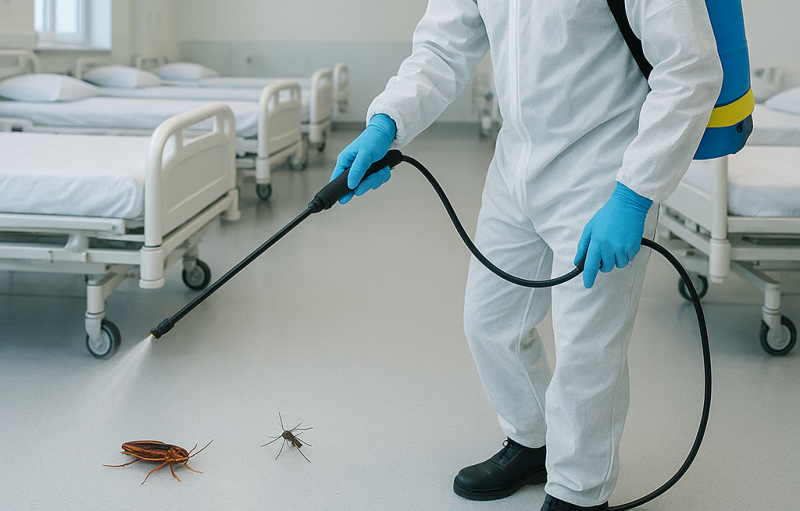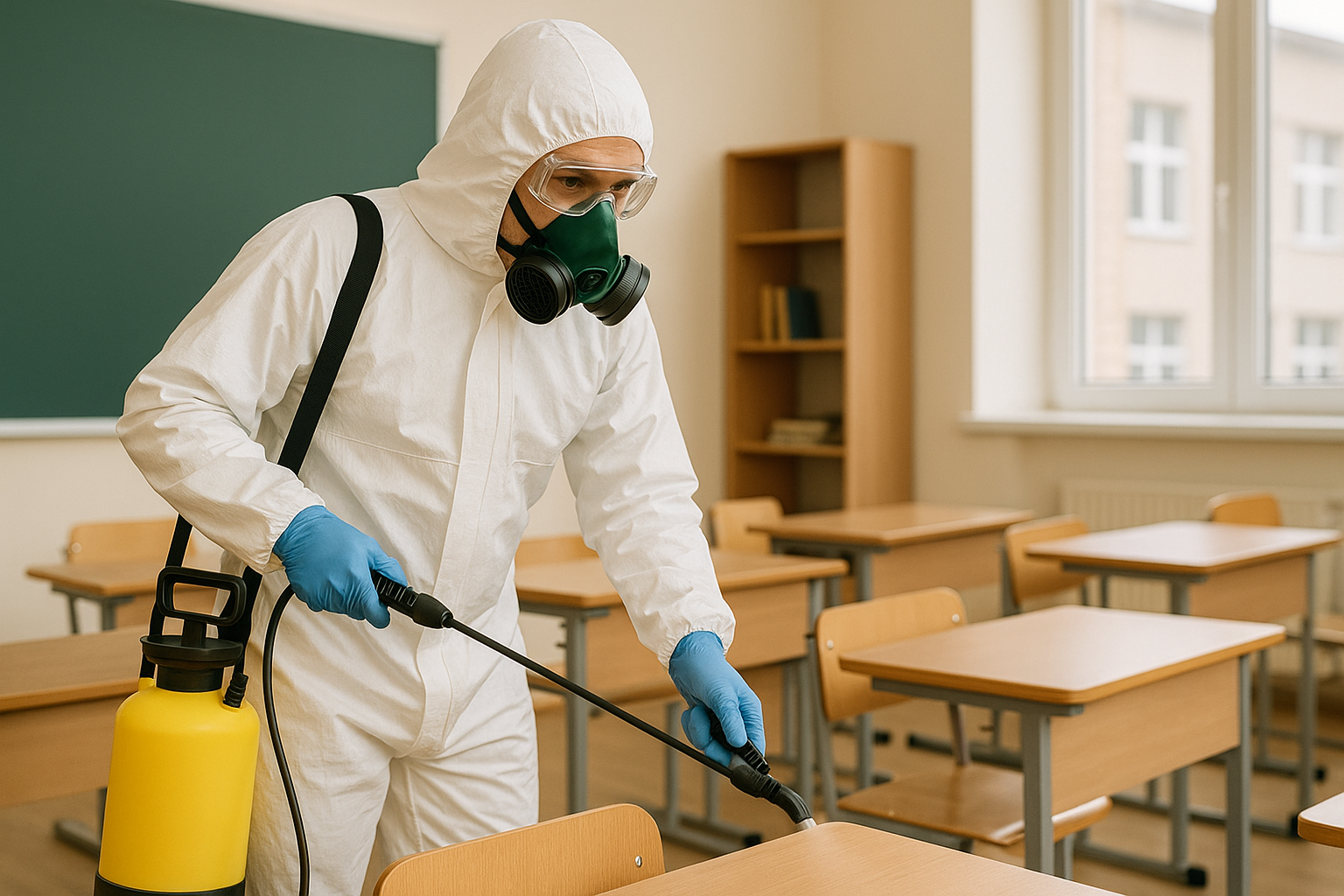Monsoon Pest Surge: Best Prevention Tips for Kerala Homes
The monsoon season in Kerala brings the much-needed rains that are very highly welcome for refreshing greenery and restoring comfort for heat-stricken Keralas, but with that there will always be guests, and some of them won’t be pleasant, and at the forefront of that list are most pests, which can disrupt any home in their planning! If you’re a resident in the Trivandrum and Kollam area, if it rains for more than a day, it will get stressful if pests like mosquitoes, ants, termites, and cockroaches come in, etc.
The monsoon season creates the best breeding conditions for various pests due to increased moisture, stagnant areas, slowed movement and reduced sunlight. And while it may seem like you have no way of beating them, the good news is you can proactively protect your home with some steps in order to prepare yourself and with the help of pest control booked at a suitable time for them and yourself.
Here is everything you need to know about how to stay pest free this monsoon.
Why Do Pests Surge During Monsoon?
Monsoons create an ideal atmosphere for pests to flourish. High humidity, water-logging, and dark, moist corners all create a great atmosphere for the pest to breed. Here are some examples of this:
- Mosquitoes lay eggs in still puddles of water collected from drains, pots, and water tanks.
- Cockroaches migrate indoors for shelter and food, usually hiding in kitchens or the bathroom.
- Termites will become active in the presence of moisture and will start silently damaging your wooden furniture and wooden walls.
- Ants and rodents are looking for dry and safe spaces, and they come inside surprisingly often.
Pests are a nuisance, and you should be aware of the serious health risks associated with pests, as they can carry diseases (e.g., dengue or malaria) or contaminate the food you eat or bring on allergic reactions.
Proven Monsoon Pest Prevention Measures for Homes in Kerala
-
Identify Entry Points
You should first conduct intensive inspection around the house. Cracks in the walls: check the interval between broken pans and doors and their frames in the windows. Caulk as possible and seal several entry points with weather stripping; this will reduce the chances of insects and pests entering your house during the rainy season.
-
Standing Water
It only takes a spoonful of water for mosquitoes to breed. Subsequently, regularly empty flower pots, bird baths, or clogged drains of water. Also, check your terrace, balconies, or about your foundation to ensure there isn’t any standing water around.
-
Keep Your Kitchen Dry and Clean
Your kitchen is the number one breeding area for pests like ants, cockroaches, and, in some cases, rodents. In the monsoon season:
- Wipe down surfaces regularly to keep them dry and limit food waste build-up.
- Store food in sealed, airtight containers.
- Avoid leaving dirty dishes overnight.
- Make sure your garbage bin is clean (and emptied daily).
Pests are attracted to damp food residue and damp surfaces; keeping a clean kitchen can mitigate problems down the pest.
-
Fix Leaks Immediately
Leaking or clogged pipes allow cockroaches and ants an easy entry point into your home. Get all leaks fixed or patched as quickly as possible (especially in washrooms, kitchens, and basements). Any walls that become damp will also attract termites, so prioritise plumbing work.
-
Use Natural Pest Deterrents
If you’d rather take the eco-friendly approach, there are a number of natural pest deterrents that are quite effective:
- Camphor and cloves can help deter cockroaches.
- Cinnamon and bay leaves can be fixed near the ant trails.
- Lemongrass oil or citronella works best for mosquitoes.
These are good tips if you are totally overwhelmed with this problem, but they probably wouldn’t be the solutions for a major pest problem you may have in your home.
-
Regular Deep Cleaning
Dust, dampness, and dirt are breeding sites for most monsoon pests. Think about carrying out a thorough deep cleaning of your home at the beginning of the monsoon. Clean under beds, behind cabinets, and in corners where you may not typically bother to clean – it’s where the pests probably hide.
If time is not on your side, professional cleaning services like those offered by PCCS India can be a time saver in preparing your home for monsoon living.
-
Arrange a Professional Pest Control Service
However careful and diligent you may be, you can never ensure that monsoon pests will be kept at bay. That is where professional pest control can make a real difference.
Here in PCCS India, we offer bespoke insect control services in Trivandrum and Kollam, specifically designed to solve the challenges caused by Kerala’s climate. Our solutions for mosquitoes, termites, cockroaches, ants and rodents use safe, environmentally friendly and effective techniques.
Whether you want a one-time service or regular insect management, we can keep your home free as much as possible during the monsoon season.
Why Choose PCCS India for Monsoon Pest Control?
- Local Knowledge: We recognise the patterns of pests in your area of Kerala, mainly Trivandrum and Kollam.
- Eco-Friendly Treatment Options: We take pride in ensuring we use only safe and family-friendly treatment methods that are pet-friendly and environmentally safe too.
- Cheap Packages: We have pest control packages suitable for all home sizes and pest problems.
- Speed and convenience: Book your insect control treatment easily and work quickly if needed.
Do not waste your peace during this rainy season. To help your trust solve your home infection, we have faith in us, and enjoy the monsoon season in the way it should be – restoration and restructuring.
Final Thoughts
While the monsoon season is beautiful, it also does extra work to ensure a safe and healthy home. If you work to take some basic precautions and get proper assistance from professionals, you will be one step ahead of the insects.
Looking for reliable insect control in Trivandrum/Kollam?
Just visit www.pccsindia.com and book your monsoon pest inspection. Because prevention is always better than pest control.









